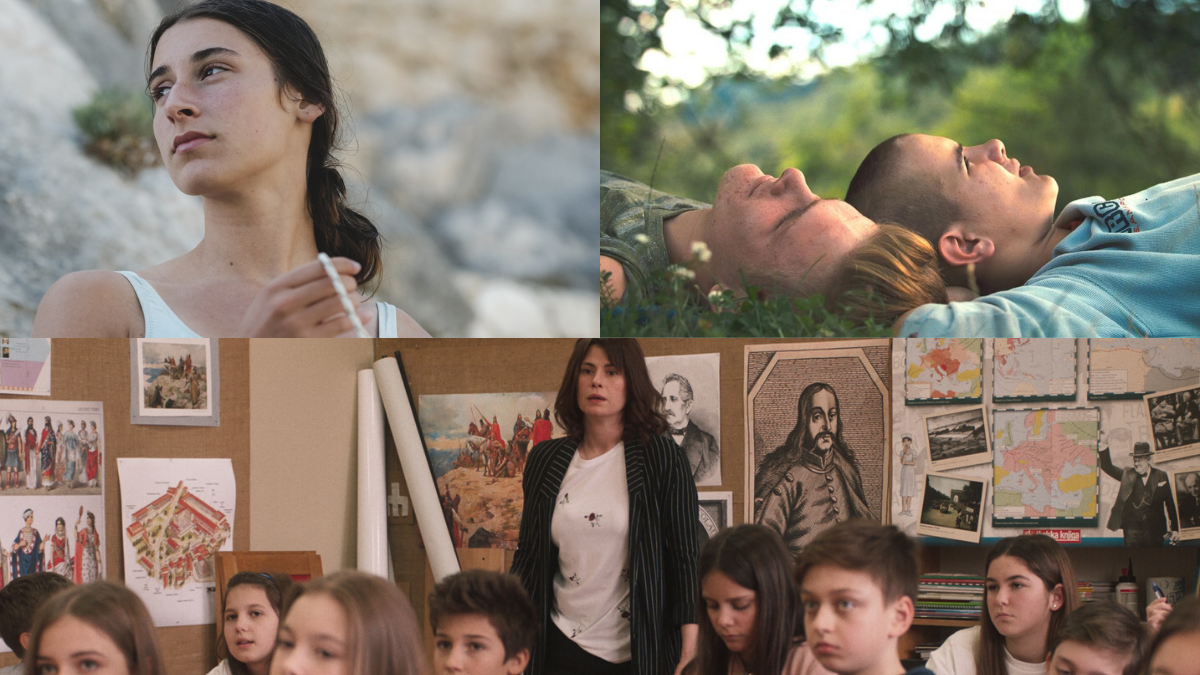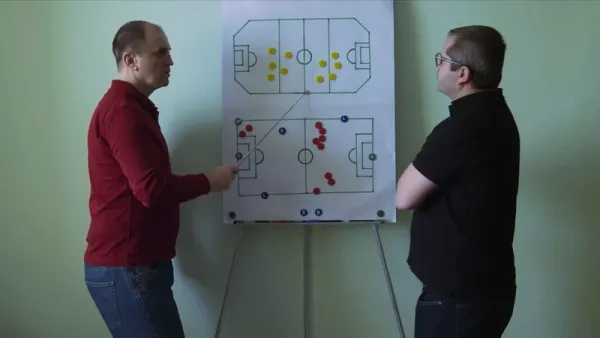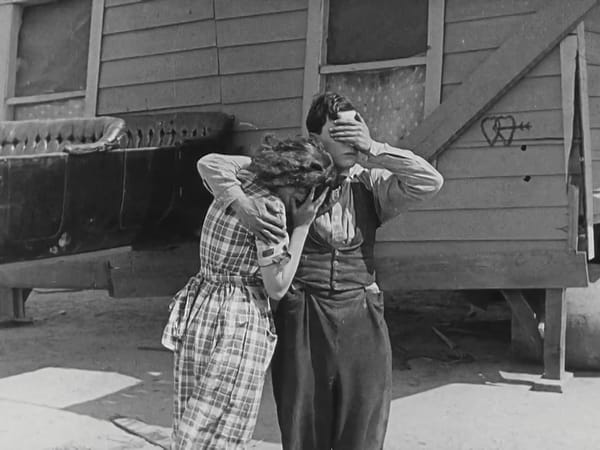Talking ‘Bout My Generation

Three recent films set in Croatia and Bosnia look at the peculiar, frustrating situation of their younger generation
One could be forgiven for imagining that the behaviour of the father character in Murina, the feature debut from Croatian director Antoneta Alamat Kusijanović, is far-fetched. Short-tempered and aggressive, Ante (Leon Lucev) is a proud man who makes his family live on a knife-edge. The locus of his frustration is his young daughter Julija (Gracija Filipovic) whom he constantly orders around and complains about. Her mother, Nela (Danica Curcic), mostly looks down at her feet and placates her husband. In fact, on the idyllic but empty Croatian island where the family lives, it seems everybody is used to his antics. But what is more peculiar and uncomfortable is the fact that Ante does not stop himself from barking at his daughter when in the company of far-flung acquaintances. When wealthy businessman Javier (Cliff Curtis) arrives and stays over for a few days while the two men discuss an important business deal, Ante grows more impatient than ever and feels no shame in disparaging his daughter in front of their sophisticated family friend.
Kusijanović faithfully remains aligned to the point of view of the young Julija as we suffer alongside her the constant barrage of insults and aggression she is subjected to day in, day out. It is clear from the start that her prison partly has to do with her gender: though she is most comfortable in her swimsuit, her father repeatedly tells her to cover herself when they have visitors, and Nela, too, insists that she wears a dress. In one scene, while looking at her beautiful mother, Julija tells her, “If I had your power, I would use it.”
But as the film progresses and snippets of her parents’ own histories and perspectives seep in through the cracks in Julija’s understandably fortified armour of stubborn resilience, it slowly transpires that this father’s cruel, impatient ways have their origin in some painful incident in his past that remains tantalisingly vague. The gender dynamic that sees Julija constantly put down by her is weaved into a more complex one. When the charismatic Javier suggests she should go to Harvard, Ante immediately shuts down that dream: “There are millions like you. Millions better than you,” he tells Julija. Weary of the outside world yet in dire need of his well-travelled friend, Ante is a bitter man whose first reflex is antagonism. There is history here, which isn’t all that surprising. What is surprising is Kusijanović’s suggestion that this is no excuse. Throughout the film, despite her own parents’ assurance that they are doing what’s best for her, and even once Javier proves to be less of a charming prince than she initially thought, Julija refuses to settle for what her father gives her. Where that leaves her is a lot more uncertain.
The film is one of several recent titles to sympathise not just with the generations that directly experienced the Balkans’ fraught recent past, but also, and more refreshingly, with the younger generations brought up in its wake — by parents struggling not just with painful memories from the war in the countries of the former Yugoslavia, but also with a whole host of complex emotions resulting from years of complicated history, and which cannot easily be reduced to war-caused trauma.
In Croatian film The Staffroom, director Sonja Tarokic indirectly tackles the issue of intergenerational trauma by centring on a character whose job it is to protect children. Marina Redzepovic plays Anamarija, a counsellor newly assigned to dysfunctional school where, among other problems, is an ageing teacher who spends his lessons reading from a school book he wrote himself and spouting conspiracy theories about how he is being watched. When she tries to bring up the issue to her supervisor, all the other teachers jump to the defence of this man, clearly damaged by the recent past but just as clearly unfit to lead a classroom. In one stunning scene before the film’s ambiguous ending, Julija in Murina is seen escaping from her father’s clutches by becoming more like the eel of the film’s title, slipping through any way she can. In The Staffroom, Anamarija does not bend to the ways of her elders either, but in a rather bleaker conclusion, she learns to beat them at their own game. Resentment, not liberation, is what the next generations will presumably be taught at this school.
Francesco Montagner finally offers glimpses at potential alternatives in his documentary Brotherhood. Like Murina and The Staffroom, the film centres on young protagonists struggling under the weight of expectations, but here, parents are nowhere to be found. The Bosnia-set film follows three brothers who are left to fend for themselves when their father, a radical Islamist preacher, is sent to jail for two years for terrorist affiliations (their mother is presumably already dead). Montagner has little interest in the man’s activities; even more so than in Murina, the focus is exclusively on the children who, though given tasks and duties to fulfil by their father, are essentially left free to grow up away from his influence. In those intervening years before his return, Jabir, Usama and Useir do not get up to much — their lives remain defined to a great extent by their rural lifestyle and a war still fresh in their minds — but should they? Quiet by nature, they nevertheless appear calm and thoughtful, pondering just how far they would like to stray away from the path laid down by their father. When the latter comes home, the difference is notable; they are back to square one.




